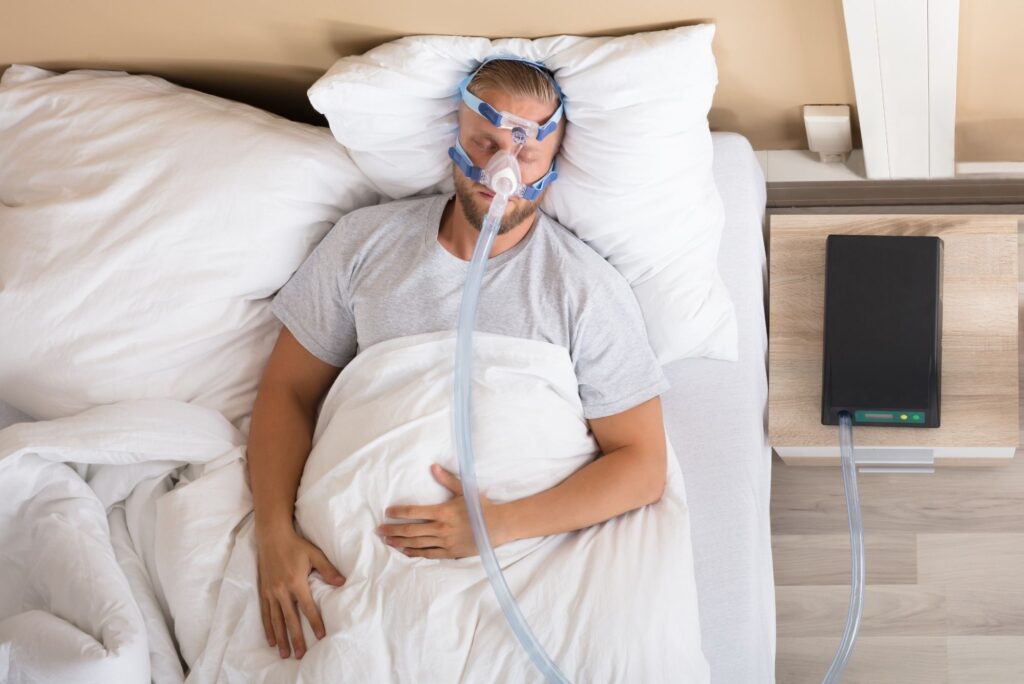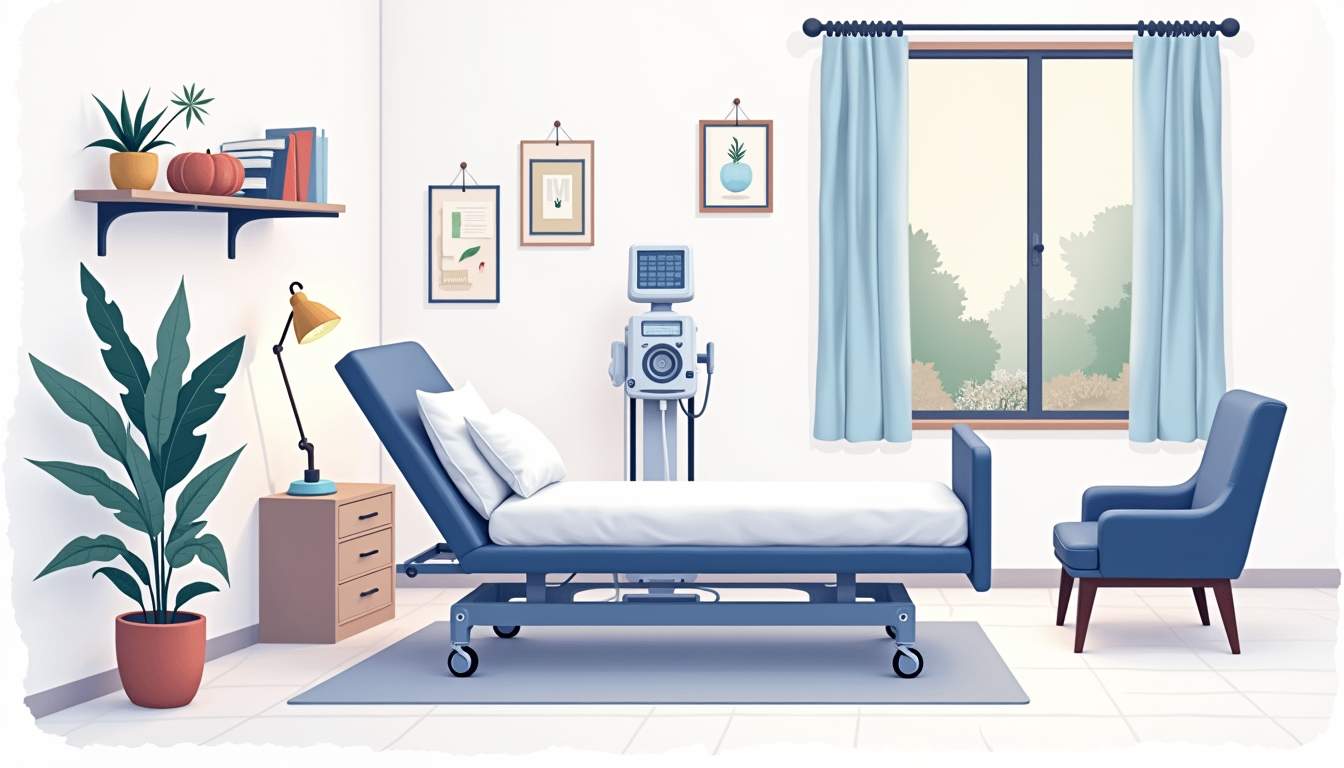Sleep apnea is a serious sleep disorder that affects millions of people worldwide. Finding the right clinic to diagnose and manage this condition can significantly improve your quality of sleep and overall health. This article will help you understand sleep apnea, the role of sleep clinics, and how to find the best clinic near you.
Understanding Sleep Apnea
Sleep apnea is characterized by intermittent cessation of breathing during sleep. This condition can lead to a range of health complications, including cardiovascular problems, daytime fatigue, and increased risk of accidents. Understanding its mechanisms and consequences is crucial for effective management. The disorder can manifest in different forms, with obstructive sleep apnea (OSA) being the most common, where the throat muscles intermittently relax and block the airway during sleep. Central sleep apnea, though less frequent, occurs when the brain fails to send proper signals to the muscles that control breathing. Complex sleep apnea syndrome is a combination of both obstructive and central sleep apnea, making it imperative to accurately identify the type for appropriate treatment.
Finding the right sleep clinic is crucial for effective diagnosis and treatment. Start by researching clinics sleep apnea test near me, focusing on their credentials and services offered. Read reviews to gauge patient experiences and satisfaction.
The Importance of Diagnosing Sleep Apnea
Proper diagnosis of sleep apnea is essential, as it allows for timely intervention. Untreated sleep apnea can lead to serious health issues, such as high blood pressure, heart disease, and stroke. Diagnosis typically involves a sleep study that carefully monitors your breathing patterns throughout the night. In some cases, home sleep apnea testing may be an option, providing a convenient alternative to traditional sleep labs. These tests can measure key indicators such as oxygen levels and airflow, helping to identify the presence of sleep apnea without the need for an overnight stay in a medical facility. Early detection and diagnosis are vital in preventing the progression of the disorder and mitigating its associated risks.
Symptoms and Risks of Sleep Apnea
Common symptoms of sleep apnea include loud snoring, episodes of paused breathing, gasping for air during sleep, and excessive daytime sleepiness. Individuals may also experience difficulty focusing, irritability, and headaches upon waking. Risk factors include obesity, age, and a family history of sleep disorders. Additionally, lifestyle choices such as smoking and alcohol consumption can exacerbate the severity of sleep apnea symptoms. It is also worth noting that sleep apnea is not limited to adults; children can also be affected, often presenting symptoms like behavioral issues or poor academic performance. Recognizing these symptoms early on can lead to more effective treatment and improved quality of life for those affected.

The Role of Sleep Clinics in Diagnosing Sleep Apnea
Sleep clinics play a vital role in diagnosing and treating sleep apnea. These specialized facilities are equipped with trained professionals who can assess your condition comprehensively. They typically offer a range of services, including sleep studies and educational resources. The importance of these clinics cannot be overstated, as they provide a dedicated environment where patients can receive personalized care tailored to their specific sleep issues. Furthermore, the multidisciplinary approach often includes collaboration between sleep specialists, pulmonologists, and even psychologists to ensure a holistic treatment plan.
What to Expect During a Sleep Apnea Test
When you undergo a sleep study, you can expect a comfortable environment where your sleep patterns will be monitored overnight. The process involves attaching sensors to your body to record various physiological data, such as heart rate, oxygen levels, and brain activity. Staff will be available to assist you throughout the night. Many clinics are designed to mimic a home-like setting, complete with cozy bedding and soothing lighting, to help you relax and fall asleep naturally. This attention to comfort is crucial, as it allows for more accurate readings of your sleep patterns, ultimately leading to a more reliable diagnosis. Learn more about oxygen on https://www.utoledo.edu/nsm/ic/elements/oxygen.html
Types of Sleep Apnea Tests
There are several types of tests that can be conducted to diagnose sleep apnea, including:
- Polysomnography: A comprehensive overnight study in a sleep clinic.
- Home Sleep Apnea Testing: A simplified version that you can do in the comfort of your home.
- Oximetry: A test that measures blood oxygen levels during sleep.
Each of these tests has its own set of advantages and considerations. For instance, polysomnography is often regarded as the gold standard for sleep apnea diagnosis because it provides a detailed analysis of sleep stages and disturbances. On the other hand, home sleep apnea testing offers convenience and privacy, making it an attractive option for those who may feel anxious about spending the night in a clinic. Oximetry, while less comprehensive, can be a useful initial screening tool, especially for patients who may have difficulty accessing more extensive testing. Understanding these options can empower patients to make informed decisions about their sleep health.
Finding a Sleep Clinic Near You
Factors to Consider When Choosing a Sleep Clinic
When selecting a sleep clinic, consider the following factors:
- Accreditation: Ensure the clinic is accredited by relevant professional organizations.
- Specialties: Look for clinics that specialize in sleep disorders specifically.
- Location: Choose a clinic that is conveniently located to reduce the stress of travel.
These factors can significantly influence the quality of care you will receive. Additionally, consider the clinic’s approach to treatment. Some clinics may offer a multidisciplinary team that includes sleep specialists, psychologists, and respiratory therapists, which can provide a more comprehensive treatment plan tailored to your specific needs. Understanding the types of therapies offered, such as cognitive behavioral therapy for insomnia (CBT-I) or continuous positive airway pressure (CPAP) therapy for sleep apnea, can also help you make an informed decision.
Utilizing Online Resources for Clinic Search
The internet can be a valuable tool in your search for a sleep clinic. Use search engines to find local clinics, and visit their websites to learn more about their services. Online review platforms can also provide insights into the experiences of other patients.
Additionally, consider joining online forums or support groups to gather recommendations from people who have undergone similar experiences. These platforms can offer a wealth of information, including personal stories and tips for navigating the often complex world of sleep disorders. Engaging with a community of individuals facing similar challenges can not only provide you with practical advice but also emotional support, making your journey to better sleep feel less isolating.
Preparing for Your Sleep Apnea Test
Preparation is key to ensuring a smooth sleep study experience. Being well-prepared can help reduce anxiety and improve the accuracy of the test results. A good night’s sleep is essential for the test to yield reliable data, so it’s beneficial to establish a calming pre-test routine.

What to Bring to Your Sleep Clinic Appointment
Before attending your sleep clinic appointment, ensure you have the following items:
- Medical History: Bring a detailed medical history and any medications you are currently taking.
- Comfort Items: Consider bringing a sleep mask or favorite pillow for added comfort during the test.
- Identification and Insurance: Have your identification and insurance information ready for verification.
Additionally, it may be helpful to bring a list of any symptoms you’ve been experiencing, such as snoring, daytime fatigue, or difficulty concentrating. Documenting these experiences can provide your healthcare provider with valuable insights into your condition. If you have a partner or family member who can share their observations about your sleep patterns, consider inviting them to accompany you to the appointment, as their input can further enhance the understanding of your sleep issues.
Understanding the Results of Your Sleep Apnea Test
After your sleep study, your healthcare provider will review the data collected to determine if you have sleep apnea and, if so, the severity of the condition. Your provider will discuss the findings with you and explain any recommended next steps. It’s important to ask questions to ensure you fully understand your diagnosis and treatment options. Be prepared to discuss lifestyle changes that may improve your condition, such as weight management, sleep position adjustments, or the potential need for a CPAP machine.
Furthermore, understanding the implications of your results can empower you to take charge of your health. Sleep apnea can lead to various complications if left untreated, including cardiovascular issues and impaired cognitive function. Therefore, it’s crucial to engage in an open dialogue with your healthcare provider about any concerns you may have and to explore all available treatment options, from lifestyle modifications to advanced therapies. This proactive approach can significantly enhance your quality of life and overall well-being. To learn more about cognitive click here.
Post-Test: Managing Sleep Apnea
Once diagnosed with sleep apnea, it’s essential to focus on managing the condition effectively to mitigate its impact on your health.
Treatment Options for Sleep Apnea
Treatment options for sleep apnea can vary based on the severity of the condition, but common methods include:
- CPAP therapy (Continuous Positive Airway Pressure): A common treatment that involves wearing a mask connected to a machine during sleep.
- Oral Appliances: These are custom-fitted devices that reposition the jaw to keep the airway open.
- Lifestyle Changes: Incorporating weight loss, avoiding alcohol, and quitting smoking can substantially reduce symptoms.
Lifestyle Changes to Manage Sleep Apnea
In addition to medical treatments, certain lifestyle changes can significantly help manage sleep apnea:
- Exercise Regularly: Engaging in regular physical activity can reduce the severity of sleep apnea symptoms.
- Maintain a Healthy Diet: A balanced diet can help control weight and improve overall health.
- Establish Regular Sleep Patterns: Going to bed and waking up at the same time every day can improve sleep quality.
By making these adjustments and staying committed to your treatment plan, you can effectively manage sleep apnea and enjoy better sleep and overall health.
